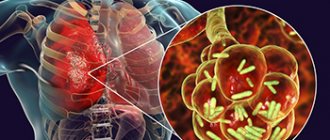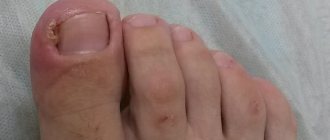Issues discussed in the material:
- What is senile dementia
- What types and degrees of disease exist?
- How to understand that the disease is progressing
- What treatments are there for dementia?
- How to care for an older person with dementia
Dementia of old age is a clinical syndrome characterized by loss of memory and other mental functions. It appears as a result of progressive chronic degenerative lesions of the brain. Dementia is expressed not only in disruption of thinking processes, but also in changes in behavior, up to personality degradation. The article examines the types of dementia, methods of treating it, as well as methods of caring for older people with this disease.
Why does senile dementia occur?
20 years is the age at which the natural process of loss of nerve cells begins. Therefore, a slight impairment of short-term memory is quite normal in all older people. A person begins to forget the names of recent acquaintances, places where he put things, etc. As a rule, problems in everyday life do not arise from this type of deviation. However, if dementia progresses in an elderly person, the distress will be much stronger.
The most common causes of pathology are:
- Alzheimer's disease (65% of all cases);
- impaired vascular function as a result of atherosclerosis, arterial hypertension, poor circulation and blood counts;
- alcohol and drugs;
- Parkinson's disease;
- Pick's disease;
- diabetes;
- head injuries;
- endocrine and autoimmune diseases;
- infectious diseases (AIDS, encephalitis, etc.);
- aggravated diseases of internal organs;
- severe renal and liver failure;
- consequences of the hemodialysis procedure.
Sometimes the progression of the disease in the elderly occurs due to several reasons at once (for example, in the classic senile (senile) mixed form of the disease).
Risk factors leading to the development of dementia:
- age 65 years and above;
- hypertonic disease;
- increased levels of lipids in the blood;
- obesity, as well as lack of physical activity.
- lack of mental activity for three years or more;
- low estrogen levels (only in older women).
We recommend
“Signs of senile dementia and ways to prolong mental health” Read more
Environmental
There are several reasons, we list them:
- Advanced age. After 60–65 years, the risk of the disease increases significantly, this is due to the fact that older people, due to their age, are more susceptible to external factors.
- Diabetes. This disease often affects blood vessels, including the brain, and in the absence of adequate treatment can lead to dementia.
- Stroke. When a stroke occurs, certain blood vessels are damaged and there is bleeding in the brain, which can contribute to the onset of dementia.
- High pressure. Hypertension also negatively affects the health of blood vessels and can lead to dementia.
- Any brain injuries, as well as tumors, hematomas, large abscesses.
- Smoking and alcohol have a huge negative impact on the brain. The result is senile dementia.
- Level of education and professional activity. Highly educated people who engage in mental work all their lives are less susceptible to senile dementia, and vice versa: people who do not have an education and do not train their brains get sick more often, and their disease progresses faster.\
- Violation of immunity and metabolism in the body.
Hereditary
If a blood relative of an older person has had Alzheimer's disease or other similar diseases, the likelihood of developing dementia increases.
Types of dementia in old age
According to the etiological factor, dementia can be:
- vascular,
- atrophic,
- mixed.
Depending on where the lesion is located, the following types of dementia in the elderly are distinguished:
- cortical (in the cortical centers of the brain);
- subcortical (basal ganglia, white matter, limbic system, etc.);
- cortical-subcortical;
- multifocal, accompanied by many foci of brain tissue damage.
Syndromic classification divides dementia into:
- total (changes are rough, pronounced);
- lacunar, or dysmnestic (occurs with milder symptoms).
Pseudodementia is distinguished separately. In this condition, cognitive functions sharply deteriorate due to existing psychiatric pathology (hysteroid psychopathy, depressive disorders).
Possible risk factors for dementia
Dementia or dementia, in addition to various diseases and hereditary factors, can also occur due to external pathological processes that complicate cognitive functions.
Experts include such processes as alcoholism, prolonged depression, infectious diseases (encephalitis, tuberculosis, HIV infection), brain injury or oncology, vitamin deficiency (especially regarding B vitamins), chronic brain hypoxia due to bronchial asthma or cardiac pathologies, lack of synthesis of certain thyroid hormones.
Dementia in these pathologies is distinguished by the possibility of effective therapy until complete recovery, ease of progression in comparison with other causes of its occurrence, and stopping the progression of the disease with timely relief of the provoking factor of its development.
Degrees of senile dementia
1. Early.
Since the disease progresses slowly, its symptoms are invisible to both the patient and relatives. Therefore, seeing a doctor is often late.
Clinic for early stage dementia in older people:
- forgetfulness;
- violation of the time count;
- disorientation in space, even in a familiar place.
2. Average.
Symptoms of the disease intensify:
- an elderly patient begins to forget what happened recently, in addition, he does not remember the names and faces of acquaintances;
- an elderly patient ceases to navigate even in his own home;
- communication becomes significantly more difficult;
- a person suffering from dementia is no longer able to take care of themselves without assistance;
- the elderly person's behavior worsens;
- for a long time the patient performs the same aimless actions or asks about the same thing several times.
3. Late.
The manifestation of dementia in old age at this stage is the onset of complete dependence of the patient on his relatives, who provide constant care for him. Main features:
- absolute disorientation in time and surrounding space;
- an elderly patient has difficulty recognizing relatives and friends;
- a person suffering from dementia needs constant care, as he cannot eat food on his own, as well as perform simple hygienic manipulations;
- behavioral disturbances intensify, the elderly patient becomes more and more aggressive.
We recommend
“Dementia in older people: symptoms and treatment” Read more
Main symptoms of the disease
We have already said that the first symptoms of the disease do not cause concern: it all starts with mild forgetfulness, which is attributed to old age. But then the disease progresses and other symptoms of dementia appear:
- Fine motor skills of the hands deteriorate, a slight tremor begins, which gradually increases, capturing more and more new parts of the body.
- Hygiene problems. The patient may forget to brush his teeth, then skips water procedures, forgets to put on mandatory clothing (for example, a man can go outside without trousers, and a woman without a skirt).
- The train of thought is disrupted, the person loses the thread of the conversation, subsequently forgets even the names of the most common objects, for example, he will look at a fork and painfully remember the name of this object.
- Psychomotor skills deteriorate.
If the relatives of an elderly person closely monitor his condition, they will not miss the onset of dementia. It is important to remember that once symptoms appear, they will not disappear; they will only worsen and multiply like a snowball. That is why it is important not to miss the very beginning of the disease and have time to take measures in order to achieve, even if not a complete cure (this is impossible), then at least delay the onset of serious consequences.
Alzheimer's disease
Alzheimer's disease is characterized by a selective or lacunar type of dementia. This is an atrophic senile type of dementia, the symptoms of which appear before the age of 60. The majority of cases are observed between the ages of 65 and 75 years. Alzheimer's disease can be inherited. Risks are reduced if you study music and foreign languages from early childhood.
This type of senile dementia can develop for the following reasons:
- getting injured;
- state of oxygen starvation of the brain;
- neurotoxin poisoning.
The disease develops as a result of a biochemical disorder of glucose metabolism, which leads to the formation of plaques consisting of poorly soluble protein. These plaques, deposited in the brain, contribute to degenerative changes in nerve cells. As a result, lesions form in the cerebral cortex, which can lead to total dementia.
How quickly does dementia progress in old age? At the onset of Alzheimer's disease, memory is impaired. The elderly man is slightly absent-minded and a little forgetful, which does not attract attention at first.
The environment begins to notice changes when a person constantly forgets even recently occurring events. Although the elderly patient remembers much earlier episodes from her life very well. But later they disappear too. A patient with Alzheimer's syndrome cannot recall necessary information at the right time.
The newly received information is practically not absorbed. Elderly people have impaired spatial and temporal orientation. They often start asking questions about what day of the week, date, month, year it is. The course of the disease worsens, and the person ceases to understand where he is and does not recognize himself in the mirror. In addition, visual and hearing disturbances appear, and tactile sensitivity is impaired. Older patients cease to correctly perceive acquaintances, relatives, and home environment. In the later stages of dementia, older people cannot adequately identify their own identity.
The practical sphere of activity is gradually degrading. The process begins with the loss of complex professional skills and ends with the complete disappearance of self-service skills.
At the very beginning of the development of the disease, the elderly person is animated and fussy. Then his fussiness turns into reflexive monotonous movements. Speech is gradually reduced.
Emotionally, an Alzheimer's patient develops egocentrism, dissatisfaction with himself and his inability to overcome difficulties in professional activities and studies.
First, the elderly patient realizes that abnormal abnormalities are occurring and tries to take action. As the disease progresses, the level of self-criticism decreases. At the same time, the circle of interests of an older person narrows significantly, his judgments become more primitive. Literally before our eyes, the elderly patient degrades emotionally, turning into a very distrustful, touchy and, finally, indifferent person.
We recommend
“Products for Alzheimer’s patients: dishes, clothing, gadgets, games” Read more
Types of senile dementia
For each type of senile dementia, there are different signs of its manifestation:
Vascular dementia.
Initially, a decrease in attention and concentration appears. Then the patient quickly gets tired and gets irritated. He may be bothered by pain in the head and neck area. Insomnia or, conversely, excessive sleepiness appears. A person can sleep either 4–5 hours or the whole day.
Memory impairments are still not clearly expressed. But you should pay attention to the manifestation of emotions. Sick older people are subject to rapid changes in mood. They are indifferent to surrounding events and suffer from hallucinations. Epilepsy attacks may occur. The mobility of the limbs and gesturing decreases. Facial expressions become less pronounced. Dysuric disorders occur. Such people are unkempt and indifferent to daily self-care.
Atrophic senile dementia.
The main signal of this stage is a process that is accompanied by the inability to save, accumulate and use the information received. Simply put, memory impairment. In mild cases, this results in forgetting the events that just happened. The severe form is characterized by the inability to remember the events of several past years and loss of space. The vocabulary becomes impoverished and attention wanders. But with this form of senile dementia, glimpses of consciousness are possible, when the patient understands the severity of his illness and can somehow mask his illness.
Doctors divide forms of atrophic dementia according to the following criteria:
- Partial dementia. Expressed in memory deterioration, loss of strength, lethargy. Often the patient is depressed.
- Epileptic dementia. Clear signs appear over time. A sick person is characterized by attacks of aggression, anger, and rancor. They can perform actions carefully, consistently, often with diligent repetition. Speech inhibition is observed, interest in what is happening around disappears.
- Schizophrenic dementia. This condition requires constant supervision of the patient, preferably in a specialized institution. This form is characterized by deep withdrawal into oneself, loss of emotionality and activity.
- Alzheimer's disease. It is worth taking into account that this disease can be inherited. The onset of painful processes is possible before the age of 60, but often the likelihood increases sharply by the age of 65–75.
Initially there is memory deterioration. Distracted attention, forgetting any things or events do not bother a person at first. An alarming signal is when the patient systematically cannot remember episodes that occurred recently. However, older people remember events that happened ten years or more ago very well and in detail. But over time they are also forgotten.
The patient cannot recall in memory the data that he needs at a certain moment. The information just received is also not perceived. There is disorientation in place and time. An elderly person cannot remember the date of today, where he is now and does not even recognize himself, his family, or his friends. Along with this, vision and hearing decrease, and sensitivity decreases.
Next, the person ceases to identify himself with the outside world. The knowledge and skills associated with his profession decrease and then disappear altogether. The situation gets worse when the patient cannot cope with personal needs, the vocabulary becomes poorer, and diction is impaired.
In the early stages, older people still understand that an illness is emerging and make attempts to resist it. But with the progression of senile dementia, the critical assessment of one’s own condition decreases. Interest in his hobbies and events around him disappears, the patient withdraws and withdraws into himself.
- Pick's disease. The same applies to atrophic senile dementia, only more global. Women are often susceptible to this type of dementia.
Appears as a result of destruction and death of the cerebral cortex in the frontal and sometimes temporal lobes. Disease processes affect the emotional sphere. A person's critical self-esteem disappears. He ceases to control himself and falls into opposite emotional states (apathy, euphoria). Swears with obscene words, makes scandals for no reason.
Patients with this diagnosis are characterized by lustful behavior and the inability to control feelings of lust. A person changes before our eyes and can behave antisocially. There are no speech impairments; on the contrary, it is fast and with many words, but there is a problem with the correct use of terms and expressions. Thought processes are preserved, but the patient cannot analyze or draw correct conclusions based on the information received.
The acquired skills in counting, writing, and those related to professional activities remain for a long time. Memory does not deteriorate as much as in Alzheimer's disease, that is, the patient does not fall into an unconscious state.
Mixed dementia.
This type of senile dementia occurs as a result of destructive, destructive actions associated with the use of drugs, substances that change the human psyche. This question is relevant for those people who have been taking psychotropic drugs prescribed by psychiatrists for several years. These substances must be taken in courses. Long-term use leads to acute poisoning of the body, which can develop into dementia.
In addition to the state of causeless inspiration and enthusiasm, a persistent attachment to these substances appears. Their accumulation in the body leads to serious disorders of mental processes. With addiction comes emotionally unstable states, frequent mood swings, and blues. All this is aggravated by loss of strength, weakness, lethargy and insomnia. As a result, a severe mental disorder on the verge of insanity occurs, the person ceases to perceive the reality around him.
Reality is not a stimulus to action. The use of poisonous drugs and isolation from reality accelerate the degradation of personality. But such patients have a much higher chance of recovery and adaptation to normal living conditions than patients with Alzheimer's disease and vascular dementia.
We recommend
“Causes of itching in older people and ways to combat the disease” Read more
Vascular dementia
Of all types of senile dementia, 20% of cases are due to dementia of vascular origin. This species ranks second after Alzheimer's disease.
Dementia stands apart against the background of vascular accidents:
- hemorrhagic stroke, in which brain vessels rupture;
- ischemic stroke, during which blockage of blood vessels occurs and blood circulation in a specific area worsens or stops.
In these situations, brain cells die en masse, with focal symptoms most clearly manifested, which depend on the location of the affected areas. The clinical pictures of dementia after stroke are varied. It is important how severely the vessels are affected, what is the area of the blood supply to the areas of the brain. Much will depend on the compensatory capabilities of each individual organism. In case of vascular injury, timely and adequate medical care is of great importance.
Dementia of old age, resulting from chronic circulatory deficiency, occurs in a more homogeneous clinical picture.
We recommend
“Vascular dementia: symptoms, diagnosis and treatment methods” Read more
Senile dementia with Lewy bodies
This type refers to atrophic, degenerative processes, during which intracellular inclusions (Lewy bodies) are formed in the brain. What are the causes of this phenomenon and what are the mechanisms of its development, specialists do not know. Doctors note the important role of hereditary factors in the progression of pathology. This type of elderly dementia accounts for 15–20% of the total mass of senile disorders of the central nervous system.
Many symptoms of this type of pathology are similar to the manifestations of dementia described above. The most characteristic indicator is fluctuation, which consists of sudden disruptions in intellectual and mental activity. Doctors consider these deviations to be partially reversible.
With small forms of fluctuations, elderly patients experience a temporary inability to concentrate on anything specific (subject, object, task, as well as the process of solving it). If an elderly patient has large forms of fluctuation, he does not recognize objects, close people, and is not able to navigate the area.
Another distinctive characteristic of this type of dementia is auditory, visual, and sometimes taste and tactile hallucinations.
In addition, autonomic disorders are observed during the disease process:
- hypotension of the orthostatic type, in which an elderly patient’s blood pressure sharply decreases when changing body position;
- fainting, arrhythmia;
- disorders in the gastrointestinal tract, increased constipation, urination problems, etc.
Treatment of senile dementia with Lewy bodies is similar to that of Alzheimer's disease. If there are signs of confusion in an elderly patient, acetylcholinesterase inhibitors and sometimes atypical antipsychotics are prescribed.
Treatment at the Energy of Health clinic
Neurologists at the Energy of Health clinic offer the most effective treatment and prevention methods for senile dementia today:
- reliable drug regimens that are selected on an individual basis;
- course treatment using intravenous infusions (droppers) in a day hospital;
- Psychiatric consultations and psychotherapy;
- training in home prevention and patient care.
We will conduct a full examination of the patient to identify concomitant pathologies and select medications with a minimum number of contraindications, as well as organize spa treatment if necessary.
Alcoholic dementia
This type appears due to the long-term (over 15–20 years) influence of toxic substances on the brain. In addition to the direct effects of alcohol, the development of pathology is indirectly affected by vascular disorders and endotoxins in alcoholic liver damage.
In most patients at the third stage of alcoholism, when the personality has degraded, atrophic changes in the brain are noticeable, in the form of dilated cerebral ventricles and furrows in the cerebral cortex.
Clinical symptoms of alcoholic dementia are expressed in a diffuse decrease in intelligence. Due to personality degradation, the patient’s memory, attention, and ability to think abstractly deteriorate. Emotional hardening occurs, social ties are destroyed, thinking becomes primitive, and all value guidelines disappear.
At this advanced stage of alcoholism, it is difficult to motivate a person to engage in treatment. But if the patient completely abstains from alcohol for 6–12 months, then the symptoms gradually decrease. In addition, according to research, organic defects are smoothed out.
Questions and answers
When does alcohol-related dementia begin to develop?
Dementia due to the abuse of alcoholic beverages develops under conditions of prolonged use of alcohol - 10-15 years. The condition is aggravated by vascular pathology and liver diseases.
If a person periodically forgets the names of his relatives in old age, is this developing dementia or simply senile forgetfulness?
This condition is typical for older people. If there are no additional signs of dementia (decreased intelligence and disturbances in the emotional-volitional sphere), there is no need to worry. It is advisable to consult a family doctor or general practitioner.
Consequences of senile dementia
The development of dementia in old age leads to the following:
- Loss of self-care skills.
- Threat of emergency situations (fire, gas leak, flooding, etc.).
- Risk of injury to the patient.
- The likelihood of bedsores forming, as well as their infection (if the patient is immobilized).
- Exhaustion and dehydration of the body.
- Aggressive behavior towards other people, self-aggression.
- Mental disorders, manifested in the form of delusions, hallucinosis, etc.
We recommend
“Caring for older people with dementia: learning to build relationships” Read more
Disease statistics
World statistics provide disappointing information: the number of people suffering from dementia is steadily growing. In 2009, the number of people with dementia was estimated to be about 35 million, and the number was projected to be 115 million by 2050. But the forecast has now been increased by 15 million. That is, the rate of increase in the incidence of dementia is steadily increasing, this is an alarming sign.
Currently, the morbidity statistics in Russia are not encouraging either. We are in seventh place in the world in terms of incidence of this serious disease. According to the most optimistic estimates, about two million elderly people in Russia are currently diagnosed with dementia, and this figure is growing.
How is senile dementia diagnosed?
The diagnosis is made in the presence of symptoms of dementia, expressed in deterioration of memory and cognitive functions, loss of control over one’s impulses and emotions. The disease is also confirmed by the results of EEG, CT and neurological examination.
The condition for correct diagnosis is clarity of consciousness, absence of confusion, confusion and delirium. If social maladjustment of an elderly person is observed for six months, his attention, thinking, and memory are impaired, then a diagnosis is made based on the ICD-10 criterion.
The diagnostic process takes into account intellectual-mnestic disorders, loss of skills and abilities that manifest themselves directly in everyday life and at work.
Depending on the general clinical picture, several types of dementia are distinguished:
- dysmnestic (partial dementia);
- diffuse (total dementia);
- lacunar (partial changes).
Depending on the nature of its course, dementia can be pseudo-organic, organic, post-apolexic, post-traumatic, etc.
Dementia can manifest itself in Pick's disease, Alzheimer's disease, cerebrovascular pathology, exogenous and endogenous intoxication of a chronic type. It can also be a complication due to a cerebrovascular disease, general intoxication, or degenerative or traumatic brain damage.
Treatment of dementia in old age
The treatment regimen for senile dementia is influenced by comorbidities. It is no secret that old people have many pathologies.
Drug correction is aimed primarily at the etiopathogenesis and mechanisms of disease development. It is especially important to pay attention to cognitive problems during therapy. If additional research confirms the diagnosis of Alzheimer's, the prescription of centralized cholinesterase neurotransmitter inhibitors is justified. The patient is also advised to take “Amiridin” (from 10 to 40 mg 1 time per day), “Tacrine” (4 times a day, 10 mg), “Exelon” (1.5 mg, if in solution - 0.75 ml) and a course of Donepezil (for 6 weeks, 5-10 mg per day).
According to some data, the use of medications will help slow down the development of the disease and prevent dementia in old age:
- estrogenic hormones;
- non-steroidal anti-inflammatory blockers of COX 1 and 2;
- vitamin E;
- “Selegilina” (10 mg per day, preferably taken before lunch and divide the dose into two doses);
- “Cognitive” (10 mg in the morning);
- "Yumexa" (in two doses of 10 mg).
In elderly dementia of vascular origin, medications that have a positive effect on areas of possible risk are important. This:
- antihypertensive drugs (Berlipril, Lisinopril, Vazar);
- disaggregants (“Magnikor”, “Cardisave”);
- anticoagulants "Clopidogrel", "Tugina" (according to indications).
If the disease is accompanied by anxiety and insomnia, antipsychotics and benzodiazepines (Haloperidol, Chlorprothixene) are prescribed in small doses. For depressive conditions, an elderly patient is prescribed antidepressants.
In some cases, in order to improve cognitive-behavioral abilities, regular exercise is practiced to train memory processes and attentiveness. However, straining your memory is useful only when cognitive impairment is not too severe.
It is important that the elderly patient is supported by family and loved ones. Due to impaired perception, anxiety and confusion in older dementia patients manifests itself in unusual conditions. Therefore, you should avoid trips and trips - they can lead to severe disorientation. The home environment, on the contrary, has a beneficial effect on an elderly person.
At the very beginning of the disease, when men and women are still able to work, they should not overwork. You need to try to maintain a work routine and fully relax. Elderly patients should be monitored as there is a risk that they will confuse medications or dosages.
Nutrition is especially important in senile dementia. An elderly patient should eat well, eat a lot of nuts, fresh foods containing vitamins and fatty acids. The patient, even the elderly, needs light loads. Normotimics (lithium salts) and nootropics (“Gamalon”, no more than 900 mg; “Lucidril”, no more than 900 mg; “Piroditol”, “Nootropil”) have a good effect on the body.
We recommend
“Treatment of dementia in older people: drugs for different stages of the disease” Read more
Medicines that cause pathology
One of the causes of dementia may be the use of certain medications that enhance degenerative cellular processes in the human brain.
These medications include:
- anticholinergics to combat insomnia;
- anticholinergic drugs for allergies;
- benzodiazepines (antidepressants).
Anticholinergic drugs to combat insomnia, for example, Nitol, Sominex, increase the likelihood of developing Alzheimer's disease. Scientists from Washington studied this issue for 8 years and came to disappointing conclusions: with regular use of high doses of anticholinergic drugs, the risk of developing dementia increases by 54%, and Alzheimer's disease by 63%. Anticholinergic drugs against allergies, for example, Diphenhydramine and all its possible analogues under other trade names, similarly provoke the risk of developing dementia.
Frequent and excessive use of benzodiazepines in the form of medications for anxiety and depression leads to a 50% increased risk of developing dementia in old age. Scientists from France obtained such data experimentally in 2012, and even earlier, in 2009, American specialists came to the same conclusions after many years of observing patients who often take benzodiazepines as a sedative.
Important advice when any signs of disease occur is the need for a medical examination and prescription of therapy, and not self-medication from the nearest pharmacy, which is common among many.
Non-drug treatment
In addition to medications, a patient with senile dementia may benefit from:
- Cognitive trainings that involve reading books together, reproducing them, and discussing them. Elderly patients memorize poems and study using special cards. It is important to practice daily, as there is a chance that everything you learn will be quickly forgotten.
- Biographical trainings, the purpose of which is to maintain memories that are erased from memory. During these classes, events that happened in the past are discussed, old photographs are viewed, and retro music is listened to.
- Keeping a diary in which events are recorded. It helps train thinking, helps relieve excessive emotional tension and eliminate negative experiences.
- Physical activity, including sets of exercises, as well as walks in the fresh air.
- Art therapy, music therapy, pet therapy aimed at solving educational, developmental and therapeutic problems.
Modern methods of treating dementia
In the 21st century, new developments in the field of recognition and treatment of dementia in old age are constantly emerging. For example, modern diagnostic methods include cerebrospinal fluid analysis, MRI and positron emission tomography.
Some laboratories are working on a vaccine for dementia. Scientists “train” the immune system to identify pathogenic proteins and eliminate them.
Another promising area is gene therapy. It will help prevent the deposition of affected proteins in the brain.
We recommend
“Anti-dementia drugs for the elderly depending on the stage of the disease” Read more
How to care for someone with dementia
Elderly patients with dementia require constant care. Patients themselves, as well as those caring for them, experience great emotional and physical stress. An elderly patient is unpredictable; at any moment he can commit an inappropriate act and endanger not only himself, but also those around him. Therefore, such persons often suffer from discrimination against them. This happens especially often in nursing homes, where elderly patients are cared for by strangers who do not fully understand the essence of the disease. There are known cases of rude treatment of elderly patients and their relatives by medical personnel. If society becomes more aware of what dementia is, the situation could improve significantly.
Dementia in old age is not a death sentence. All that is required from relatives is an understanding that their loved one needs care and help in everyday life. Family members can make the environment safe by being considerate. Patience is important in providing complete care.
Regular examination of an elderly patient by a doctor and monitoring of medication intake is necessary. Medicines should not be in the public domain.
Unfortunately, the prognosis for elderly patients is quite disappointing. The process of mental degradation is irreversible, it cannot be stopped, but it is quite possible to slow it down so that the patient can lead a full life in society longer.
Life expectancy with this disease can vary from several months to decades. Timely therapy and regular training aimed at improving memory and attention are especially important. It would be reasonable to place the elderly patient in a special geriatric center for ongoing medical monitoring.
The following are used as preventive measures:
- control of blood pressure, cholesterol and sugar levels (after 60 years);
- rejection of bad habits;
- constant physical activity;
- regular mental training;
- proper nutrition.
To avoid dementia in old age, it is necessary to constantly train the brain, develop memory and attention. To do this, you should read books and retell them to others, count and add up prices in the store in your mind, and solve crosswords. Sometimes preventing a disease is much easier than dealing with its consequences.
We recommend
“Boarding house for elderly people with dementia: how to make the right choice” Read more
When an elderly relative ceases to be adequate...
If a loved one has senile dementia, what should relatives do, and how can they understand that this is a disease and not ordinary whims? Most often, dementia begins quite harmlessly. A person may complain to relatives and neighbors that they are not feeding him, they are watching him, they are trying to kidnap him, or they are letting some substances or gases into his room or apartment. This might seem funny if it weren't so sad. The disease progresses quite quickly, and over time, older people stop recognizing family members, accuse them of theft or violence, bring home garbage from the landfill, and literally fight with anyone who tries to throw it away. Some people think that dementia will not affect those who have been engaged in active mental activity all their lives. The disease does not choose, and even a doctor of science or an honored leader can be found in a garbage dump, enthusiastically digging through waste.
There is no need to think that the patient is doing this on purpose, just to mock and laugh at his loved ones. This disease destroys the brain, and the patient is not even aware of his actions. The person loses the ability to absorb or process information. He becomes very sensitive to criticism: any remark or attempt to explain something leads to protest and a new attack. How to deal with a person with dementia? Relatives will have to show maximum patience and attention, not contradict, or explain something gently and unpersistently. If the patient feels aggression, he will begin to perceive his family as enemies, and it will be very difficult to establish contact with him.











